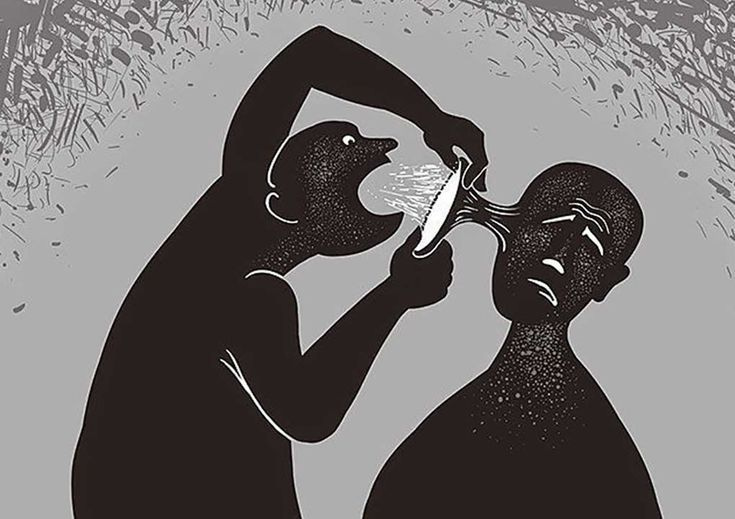Why We All Need A Wake-Up Call
How our inner narratives shape our actions, our relationships and our culture
“Watch your thoughts, they become your words.
Watch your words, they become your actions.
Watch your actions, they become your habits.
Watch your habits, they become your character.
Watch your character, they become your destiny.”
I’ve been pondering this quote for several weeks now. It’s remarkably straightforward on the surface, but in practice, many of us (myself included) often stumble in living it out. It’s always easy to nod along, agreeing with the wisdom intellectually, but far more challenging to truly implement its discipline daily. This becomes especially evident when considering the pervasive influence of narcissism, something I’ve increasingly recognised not as a trait of a select few, but as a universal potential within all of us.
Narcissism: A Universal Shadow
Exactly one year ago, I wrote a piece exploring narcissism, driven by my growing sense that many of society’s deepest troubles can be traced back to self-centeredness and unchecked ego. Narcissism, in its many forms, may indeed be at the root of our collective struggles — polarisation, isolation, cruelty, even injustice. And narcissism isn’t just “out there”, residing in easily identifiable villains. It’s also subtle and pervasive, lurking within each of us, waiting for the right circumstances to take hold.
Most of us don’t view ourselves as narcissistic, of course. We usually associate the term with extreme arrogance, entitlement or vanity. Qualities that seem safely distant from our everyday behaviours. But narcissism often manifests in smaller, quieter forms. It’s the refusal to accept criticism, the inability to genuinely apologise, the instinct to blame others when things go wrong, or even simply the constant need to talk about themselves to feel superior or validated. These patterns start from a thought. Just a tiny, unchecked whisper that when observed, slowly grow louder, changing forms into our words, our actions and habits.
The paradox lies precisely in our denial. The more certain we are of our own inherent goodness or correctness, the less capable we become of seeing the ways we might unintentionally hurt or diminish people around us. Our blind spots widen.
This is why I write and talk about mindfulness any chance I get. It goes beyond just peaceful meditation or achieving “stillness”. I see it more as a discipline of truth-telling, the persistent kind that unmasks us. Buddhism gives us a helpful reminder that we are not our emotions or thoughts, but rather the observers of these internal phenomena. Emotions and thoughts will always rise and fall like passing clouds. The key is learning to watch them carefully, compassionately, but also skeptically, particularly the ones that make us feel justified, superior, or blameless.
The Necessity of External Mirrors
No person can fully develop their moral awareness in isolation. It’s in our relationships that we find the clearest reflections of who we are. We may think we know ourselves well, but moral growth demands interaction. It’s only through trusted companions — friends, partners, mentors — that we begin to see the subtle ways ego shapes our behaviour. They reveal the defensiveness we justify, the tones we don’t hear in ourselves, the judgements we didn’t know we were making. And when we listen with openness rather than resistance, the mirror becomes our tool (not a threat) for transformation.
“Narcissism is the art of turning away from the world and pretending your reflection is reality.”
Psychological research repeatedly confirms our biases and blind spots, like the Dunning-Kruger effect, which demonstrates that the less aware we are of our own limitations, the more confidently we defend our ignorance. To counteract this, we must intentionally practice humility. That kind of humility doesn’t come naturally to everyone, especially for those raised in environments where projecting confidence, even when unfounded, was a form of self-protection. When being ‘the one who knows’ kept us safe, it’s incredibly difficult to let go of that armour. But if we allow curiosity and vulnerability to take its place, we create room for something far more valuable — an honest self-discovery. And the truth is, it’s often the only path to deeper self-awareness, emotional resilience, and real genuine connection with others.
“True humility is being able to accept criticisms as graciously as we accept compliments.”
— Sabrina Newby, an American entrepreneur and an advocate for empowering underserved communities and economic equity
The Importance of Regular Maintenance
Think of your moral awareness like a lens through which you view yourself and the world. Over time, without careful upkeep, this lens can become distorted. Ego, pride, and defensiveness cloud it, making it difficult to see reality clearly. Regular self-reflection, together with the courage to seek honest feedback from others, helps to clean this lens, restoring clarity and integrity to your perspective.
“Ethics is knowing the difference between what you have a right to do and what is right to do.”
— Potter Stewart, a U.S. Supreme Court Justice known for practical and ethical approach to law highlighting moral responsibility over legal rights
Ultimately, addressing narcissism begins in the smallest moments. It’s the passing thought of justification for selfishness, the inner voice urging superiority, the faint impulse to dismiss other people’s viewpoints. Each of these moments is an opportunity to catch these thoughts early. We can choose to interrupt their progression into words, actions and habits. We can reshape our character intentionally, orientating ourselves towards empathy, connection and humility rather than ego.
This work has never been more urgent. We are living in a time of layered, overlapping crises and at the heart of it all is a profound disorientation about who we are, what we value, and what truly matters. Narcissism, whether expressed individually or systematically, flourishes in this confusion. It masks itself as certainty, ambition, even leadership and is continually amplified by “systems and structures” that prioritise attention over authenticity.
When Narcissism Becomes the Norm
We see bad behaviour justified in the name of economic necessity, and moral compromise dressed up as pragmatism. Public figures lie, manipulate, and exploit with little consequences, and worse, sometimes with applause. This normalisation of narcissism at the highest levels of influence feeds into the belief that self-interest is not only acceptable, but essential to survive (Watch: JB Pritzker’s speech on the best way to spot an idiot. Look for the person who is cruel).
“We used to aspire to virtue; now we aspire to visibility.”
— Alain de Botton, Swiss-British philosopher and founder of School of Life
Unfortunately, this isn’t limited to just the global stages. Everyday narcissism shows up in far more familiar places — in the person who dominate conversations to feel important, in the colleague who takes credit but dodges accountability, in the friend who dismisses your feelings while highlighting their own. It’s in the habit of turning every story back to yourself, in the refusal to apologise unless cornered, in the instinct to be the smartest or most successful person in the room. We’ve all seen it, I’m sure. And if we’re honest, we’ve all done it.
To push back against this culture and trend, we need to sharpen our ability to think critically and hold strong to a moral compass, both in ourselves and in the systems around us. That starts with noticing when we’re dazzled by charm that masks manipulation, when we’re too scared to ask the hard questions, or when we keep quiet just to avoid the feeling of awkwardness.
These moments matter much more than we realise. Every unchecked thought, every tolerated lie, every polite nod to narcissistic behaviour contributes to the very culture we claim to want to change. So this is the full circle — watch your thoughts, not just for your own sake, but for the world you are helping to create. Spot the narcissism in yourself, and call it out in others, not with hostility but with clarity and resolve. Because the only real antidote to the rise of narcissism is conscious, consistent awareness and the willingness to act on it, moment by moment, thought by thought.
My Own Reflection

Over the years, my relationship with my husband, Neeti has taught me how delicate and stubborn ego can be. We’ve been together for 17 years, and while we love each other deeply, that doesn’t mean we’ve been immune to power struggles or misunderstandings. In our earlier years, I often felt the need to be right, to explain myself in great detail when I felt misjudged. Neeti, back then, would give in or be less inclined to bring up anything too negative. It took many emotionally charged conversations and a lot of mutual patience, to realise that underneath our reactions were our fears. Mine of being misunderstood, and his of being overwhelmed by my display of emotional intensity.
What strengthened our relationship was that, over time, we both chose to understand each other more deeply rather than prove who was right. We were equally willing to look at ourselves more honestly, as well as ask the harder questions: Was I genuinely trying to hear what he’s saying, or was I preparing my counterpoint? Were we defending ourselves more than we were defending the relationship? Was I truly seeing Neeti, or projecting my fears onto him?
I have always found Neeti’s line of questioning uncomfortable. Not because it was unkind, but because it usually led me straight to places within myself I didn’t want to visit. His perspective challenged my default responses, and over time, I found myself becoming less defensive and more curious. Not just about what he thought, but about how differently he processes the world. With each conversation, I made fewer assumptions and gained more clarity about who he truly is, beyond the lens of my own projections. We started to recognise when old wounds were driving present behaviours. And through this tenderness, we saw each other more clearly and more lovingly (Read: my piece “Inside Our Minds via 8 Cognitive Functions” exploring the difference between ENFJ and INFJ personality types using John Beebe’s archetype based on Carl Jung’s theory).
If you’re wondering how to start turning the mirror inward, here are three practices you can start today.
Pause before your defend — when you feel the urge to justify, interrupt, or explain yourself immediately, pause. Ask yourself: What am I defending right now? Is there something I don’t want to hear?
Name one pattern honestly — identify one habit of thought or behaviour you know is hard to admit. Like interrupting others, deflecting feedback, or seeking praise. Write it down and sit with it. Don’t justify it, just observe it.
Invite one honest conversation — choose someone you trust and ask them sincerely: Is there anything about how I come across that I might not be aware of? Then listen, really listen, without trying to fix or argue.










I've been exploring these shadow aspects, as well. Understanding that as Carl Jung suggested, we can only perceive 'darkness' outside of us that's needing to be met and integrated within us.
Beautiful Written. Read your post on narcissism a year ago and now this <3. I still remember you got mixed reaction and responses to that post but it truly aligned with my perspective too.